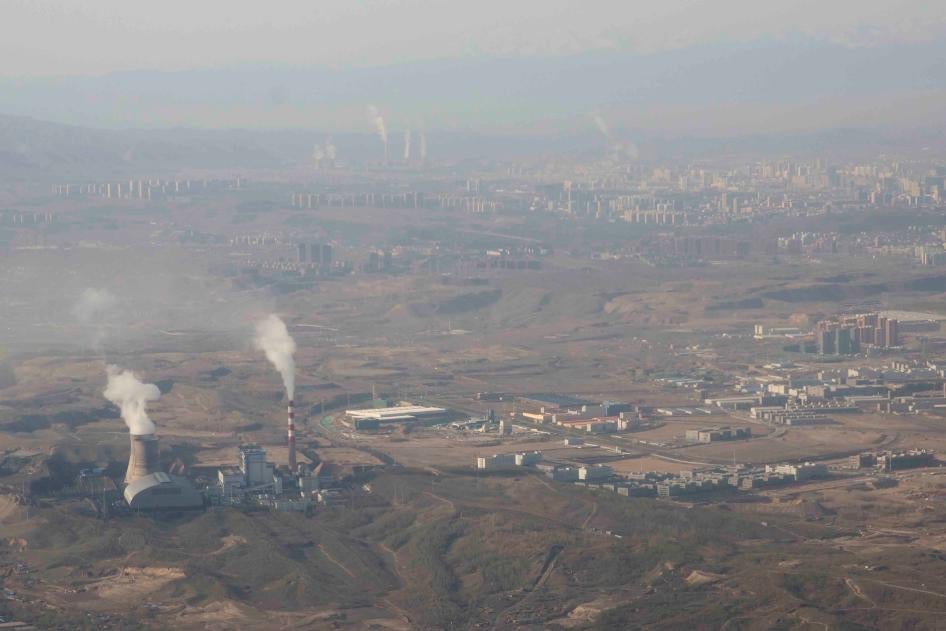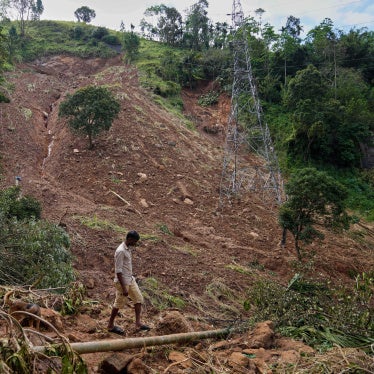To tackle the climate crisis, it is necessary for China, the world’s largest emitter of greenhouse gases, to take decisive actions to cut emissions. Almost paradoxically, China at the same time dominates the supply chains of technologies that are needed for the world to transition to renewable energy.
Meanwhile, in democracies, the inaction and the messy fights among government bodies and interest groups have left many people frustrated with the democratic process’s ability to address climate change. This and the fact that the climate fight hinges so much on China have created a willingness by some governments to overlook the problematic ways China approaches climate change.
Yifei Li and Judith Shapiro, in their essay as well as in their 2020 book, China Goes Green, caution about the perils of China’s top-down, numbers-based, and tech-driven environmental governance model. As a human rights researcher who over the years has witnessed and documented the tremendous human rights cost in the Chinese government’s pursuit of grand development goals, I am relieved to see scholars in the environment field sound the alarm about the “China model.”
As Li and Shapiro discuss, the burden of making the 2022 Beijing Winter Olympics green “fell primarily on China’s most vulnerable and politically disenfranchised.” Similarly, to reduce coal consumption, some local authorities have banned the burning of coal, including for home heating, without consulting the affected communities, forcing people who couldn’t afford alternative energy sources to freeze in the winter, and fined those who secretly burn coal.
China’s supply chains for renewable energy are also ridden with human rights violations. Almost half of the world’s supply of polysilicon, a key component of solar panels, is produced in Xinjiang, a region where government abuses against the 13 million minority Uyghur Muslims “may constitute … crimes against humanity,” according to a recent United Nations report. In Guinea, to mine bauxite, a primary source of aluminum, which is a key component of electric vehicles, Human Rights Watch documented a joint venture linked to a Chinese company that pushed farmers off their ancestral land and destroyed their water sources. The dust produced by the mining also caused respiratory illnesses in villagers.
Assessments of the Chinese government as a climate model should take into account that it bans independent media, stringently controls the internet, and routinely jails government critics. The human rights abuses that are publicly known are only the tip of the iceberg.
Li and Shapiro also call into question the sustainability of the Chinese government’s rights-trampling climate fixes, arguing that they “cause people to become confused, angry, and even hostile to the climate cause,” and that “better outcomes are achieved when grassroots, citizen-driven environmental initiatives and projects become trusted partners with the state.” This corresponds with Human Rights Watch research on climate and human rights globally. Robust and rights-respecting climate action requires the full and meaningful participation of all stakeholders, including governments, activists, civil society groups, and populations most vulnerable to the harm of climate change. Doing away with human rights to address the climate crisis is not only ethically unacceptable, but also fundamentally ineffective.
This response by Yaqiu Wang, Senior China researcher at Human Rights Watch, has been excerpted from "Authoritarian Environmentalism.” Issues in Science and Technology 39, no. 1 (Fall 2022).








